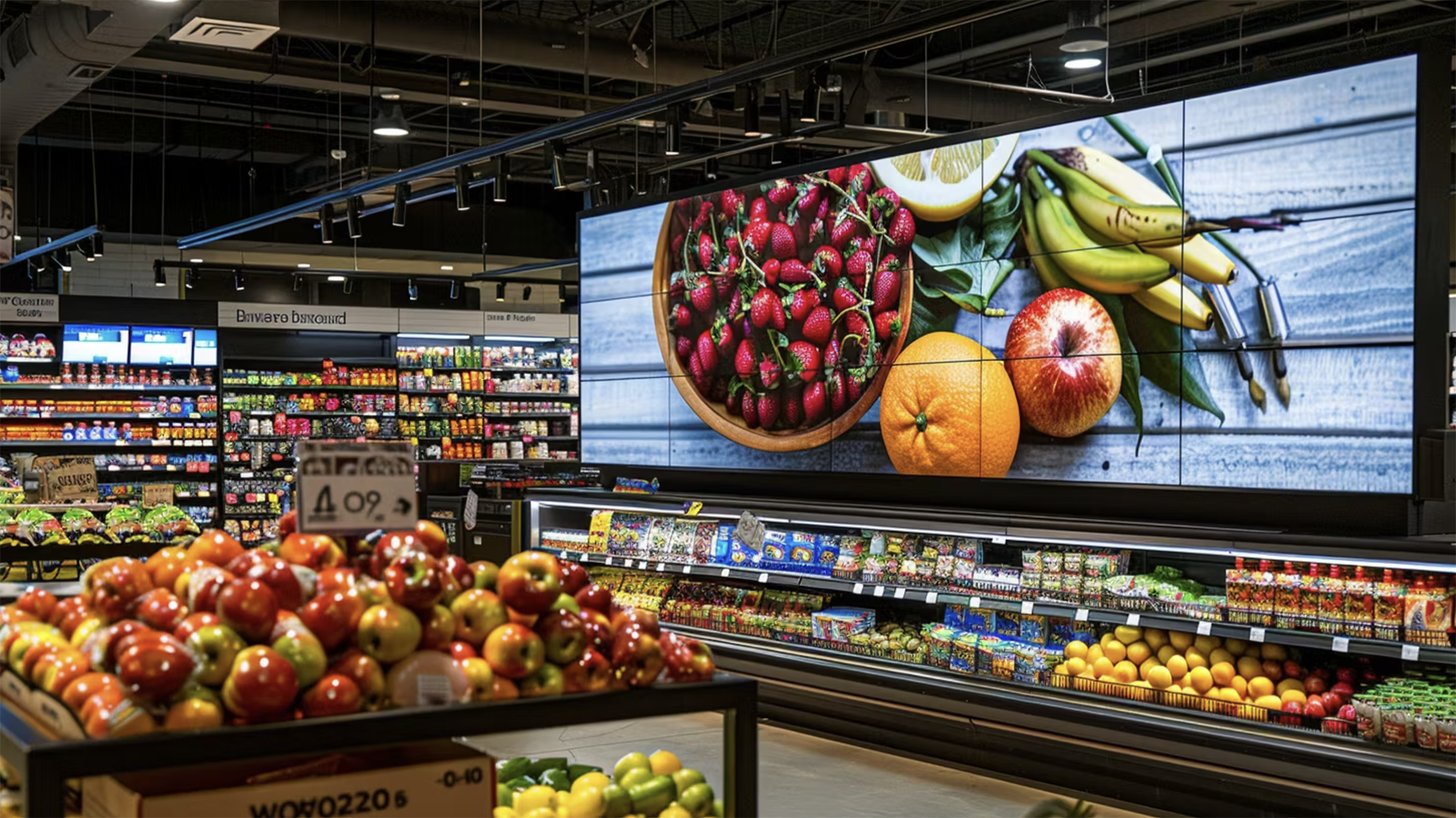Grocery Doppio AI Disruptors: 5 Robotic Innovators Revolutionizing Grocery Operations

At a Glance
- Grocers embrace robots to keep pace with digital consumers
- 63% of shoppers are price-sensitive, and tracking consumers’ shopping preferences are critical to retailers.
- Inventory Robots in Grocery Stores Help Track Shelves and Serve as Customer Assistants.
- This article deep-dives into Doppio Disruptors in the segment.
The world of grocery retail has undergone a significant transformation since the advent of e-commerce deliveries. Robotics has seen adoption in grocery stores as part of the digital revolution and accelerating demand for digital orders.
Grocery Doppio's “State of Digital Grocery Performance Scorecard” reports that 63% of shoppers are actively looking for deals when shopping, indicating price-sensitive consumers and potential sales increases in lower-priced items. To avoid stock-outs, grocers need to understand consumer behavior and preferences to adjust inventory levels to balance items in high demand and those not selling well. Retailers must understand consumer preferences and track buying behavior to avoid losing potential sales and, in turn, consumer loyalty.
This highlights the importance of knowing which items make it to customers' baskets and driving inventory levels accordingly. To address these challenges, grocers constantly seek the latest technological advancements in automating inventory systems. The adoption of robotics has accelerated with the power of cloud computing and the confluence of machine learning.
In a previous article, Optimizing Inventory: Robots in the Grocery Store we discuss how robots are utilized in grocery stores to mitigate inventory challenges. Below we delve into the game-changing disruptors automating store inventory with their pioneering robots.
Doppio Disruptors
These trailblazers have pioneered robots leveraging artificial intelligence and machine learning to incorporate computer vision, shelf-monitoring capability, barcode scans, hazard detections, warehouse automation, and order fulfillment to address grocer's challenges.
Simbe Robotics
San Francisco-based Simbe Robotics has developed an innovative and fully automated robot called Tally, which can audit a grocery store's entire inventory using a combination of computer vision, sensors, and data tracking algorithms. Founded in 2014 by Bradley Bogolea, Jeff Gee, and Mirza Shah, Tally moves smoothly up and down store aisles, collecting data on misplaced, mispriced, missing, and slow-moving products. It's worth noting that Simbe Robotics' technology is focused on auditing stores only. Simbe Robotics has collaborated with grocers Giant Eagle, Schnucks, and Hy-Vee.
Fellow AI
The California-based company has developed a 6-foot tall robot that assists grocers in navigating store aisles and identifying mispriced products on shelves. The robot uses advanced artificial intelligence and 3D mapping software to provide real-time information to store managers about incorrectly priced products and shelf-stock conditions. The company was founded in 2011 by Marco Mascorro and is an innovator in automated inventory solutions for grocers. The robot, named Navii, compares the actual shelf images of products to pre-programmed images, alerting discrepancies to store associates. In addition to its inventory management capabilities, it also serves as a customer assistant, guiding shoppers to the location of their desired products. Fellow AI has partnered with Lowe's to automate their inventory management, streamlining the process and increasing efficiency.
Badger Technologies
Tennessee-based Badger Technologies was founded in 2015 by Tim Rowland, specializing in building autonomous robots. The primary focus of the robots is to address out-of-stock, planogram compliance, and price integrity, enhancing store operations and increasing productivity. The company is a product division of Jabil and has pioneered robots that automate inventory solutions. Badger's flagship product Badger Retail In-Sight robot, is equipped to navigate through store aisles and scan shelves for missing or misplaced items. The robot can also generate reports and alert store employees, helping them take corrective actions and maintain adequate stock. In addition to high-resolution cameras, the Badger robot comes equipped with sensors that keep it clear of shoppers or other objects.
The company has rolled out robots that cater to a full suite of capabilities. Among them, the Badger robot operates autonomously and identifies products that have been misplaced or mispriced. It can also serve as a customer assistant, providing accurate information about the location of products. The robot is equipped with hazard detection and shelf-scanning capabilities.
Marty, a creation of Badger Technologies, is a tall, wheeled robot equipped with image-capturing technology allowing it to identify spills and other hazards in the store. When it detects a threat, the robot can alert store employees and customers by announcing the trouble over the store's public address.Badger Technologies robots are deployed at Stop & Shop, Giant Food, Woodman's Market, Busy Beaver, and Vallarta Supermarkets.
RightHand Robotics
The company’s Right-Pickbot improves order fulfillment operations. Artificial intelligence and machine learning combine unique gripper designs to help businesses sort products by effectively picking individual items using a suction tool and grabbing mechanism. The company was founded in 2015 by Lael Odhner and addressed the challenges grocers face in accelerating digital orders and just-in-time inventory fulfillment. The company addresses grocers' inventory woes by closing the loop with robot solutions to pick and place individual items without damaging them. Right Hand Robotics has partnered with Vanderlande and AutoStore.
Kiwibot
Kiwibot is a robotic sidewalk delivery firm that uses autonomous robots for food and package delivery. Kiwibots are designed to be self-sufficient in most of their operations, relying on a high-driving automation system. Kiwibots use artificial intelligence and level 4 autonomy to operate efficiently and effectively in many environments, making them a promising solution for the last-mile delivery industry. Being a level 4 autonomous robot implies that robots can control all relevant driving aspects when conditions are met, such as sound connectivity, GPS signal, and a map that allows safe navigation. With this level of autonomy, Kiwibots can make informed decisions on previously defined routines. Founded in 2016 by Felipe Chávez Cortés and cofounders at Berkeley, Kiwibot delivery robots are in daily operation globally, improving people's lives and transforming the last-mile delivery industry. Kiwibot has partnered with Sodexo, Grubhub, Ordermark, Shopify, and Chick-fil-A, offering efficient and convenient last-mile delivery solutions.


.png)







.png)


